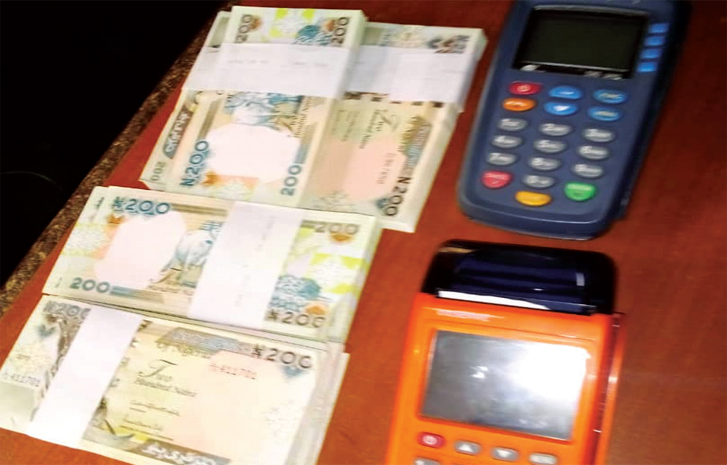By Abdulwarees Solanke
The mixed reactions that greeted the recent cash withdrawal limit policy proposal by the Central Bank of Nigeria (CBN) are understandable. This is because it hits a value system of liquid cash dependence.
But it is not a new policy. About a decade ago, the Apex bank had come up with the idea, only that it did not give full strength to it.
Then, CBN explained that it introduced the cashless policy for a number of key reasons, including:
To drive the development and modernisation of our payment system in line with Nigeria’s vision 2020 goal of being among the top 20 economies by the year 2020.
* An efficient and modern payment system is positively correlated with economic development and is a key enabler for economic growth.
*To reduce the cost of banking services (including the cost of credit) and drive financial inclusion by providing more efficient transaction options and greater reach.
* To improve the effectiveness of monetary policy in managing inflation and driving economic growth.
Read Related News:
No going back on N100k withdrawal limit, Emefiele replies NASS
Naira loses to dollar again, exchanges at N445.83
CBN redesigns N200, N500, N1,000 notes
* In addition, the cashless policy aims to curb some of the negative consequences associated with the high usage of physical cash in the economy, including:
The high cost of cash:
There is a high cost of cash along the value chain – from the CBN and the commercial banks, to corporations and traders; everyone bears the high costs associated with the volume of cash handling.
High risk of using cash:
Cash encourages robberies and other cash-related crimes. It also can lead to financial loss in the case of fire and flooding incidents.
High subsidy:
The CBN analysis showed that only 10 per cent of daily banking transactions are above 150k, but the 10 per cent account for the majority of the high-value transactions.
This suggests that the entire banking population subsidizes the costs that the tiny minority 10 per cent incur in terms of high cash usage.
Informal Economy:
High cash usage results in a lot of money outside the formal economy, thus limiting the effectiveness of monetary policy in managing inflation and encouraging economic growth.
Inefficiency and Corruption:
High cash usage enables corruption, leakages and money laundering amongst other cash-related fraudulent activities.
Despite the genuine intention behind it, it will be difficult to change the mindset. One area that it hits most is the OWAMBEs
Owambe is everything and anything that Nigerians celebrate and for which obscene shows of physical cash must be made.
From turning the sides of the dead to opening a mall, from marriage to child naming, promotion, appointment, retirement, graduation and all that warrants thanksgiving, raw cash must be displayed.
Remarkably, another business of sale of fresh mint or new notes services the obscene value.
The implication is that Owambe will no longer be lively. It is imperative to curtail the money spray syndrome.
Certainly, the policy will destabilise the fresh naira note changers at motor parks and party venues. It will also gound their bank insider fronts in the money sales or changing, to a halt.
True, not enough public enlightenment and engagement preceded the announcement. It was a shock.
Where do we go from here? It is really not a matter of limiting cash withdrawal but what they do with the cash. This is an issue of behavioural change.
It is an issue of redefining public value and morality on cash holding and spending. There are so many attachments to physical cash withdrawal or possession.
The Apex bank needs to address these attachments in the first instance.
There is, therefore, a need for more public enlightenment and engagement in the use of channels for transactions.
Newly Redesigned Banknotes
The apex bank said the newly redesigned banknotes will start circulating from Thursday, Dec. 15. The new notes are in N200, N500 and N1000 denominations.
Reports from the banking public, however, indicate that many of the commercial banks are yet to state dispensing the notes. Many ATM machines are still loaded with old, tattered notes.
Mr Godwin Emefiele, the Governor of CBN, had in October, announced that the apex bank would release the newly re-designed naira notes by Dec. 15, while the old notes would cease to be legal tender by Jan.31, 2023.
Emefiele said the redesigning of the naira notes would help to curb counterfeit notes and reduce ransom payments to terrorists and kidnappers. He said that it said it was also worrisome that 85 per cent of the total currency in circulation was being hoarded.
AbdulWarees Solanke is a Deputy Director with the Voice of Nigeria (VON), Lagos
Do you have a flair for Citizenship Journalism? Share story(ies) of happenings in your area with The NewsZenith on WhatsApp: 08033668669 or thenewszenith@gmail.com
